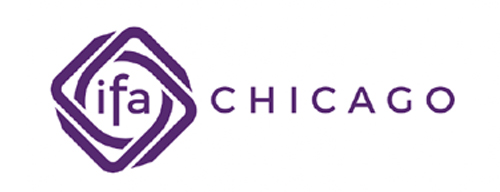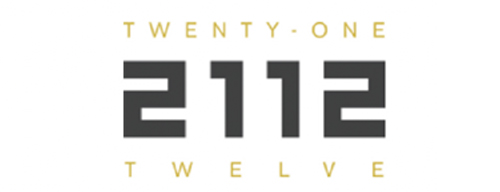![]()
As a full-service, boutique agency with in-depth film industry knowledge, Johnsonese can rapidly deliver a broad range of coverage options for even the most complex productions.
Who We Insure
Johnsonese offers insurance solutions for a full range of film productions and equipment. We commonly cover:
- Short-Term Productions
- Indie Films
- Documentaries
- Cinematographers
- Commercial Producers
- DICE Producers
- Film Equipment
(Rented or Owned) - Post-Production Houses
- Podcast Producers
- Directors of Photography
- Props/Sets/Wardrobes
Our Experience
Our Johnsonese team has over 25 years of experience providing insurance solutions for all aspects of the film industry. Serving clients big and small from coast-to-coast, our Chicago-based knowledgeable staff even includes a filmmaker. We fully understand the intricacies of production and the demanding schedules producers face, allowing us to quickly organize an insurance package that fits your specific needs.
Our agency is actively involved in the film industry, including membership in the Independent Film Alliance, and frequently attends and presents at conferences and workshops. A few of our notable clients include: MEE Productions (a Philadelphia a client since 2010); Digital Alliance Media LLC (a Chicago client since 2016); and Storyview (a Chicago client since 2010).
Johnsonese Has Insured More Than 500 Films
Film Production Insurance Solutions
Johnsonese offers personalized service and a wide range of coverage options that help reduce risk exposure for your ideas, people, equipment, production and more. Our solutions include:
- Short-Term and Annual Production Packages
- DICE Production Packages
- General Liability
- Extra Expense
- Drone Liability and Physical Damage
- Third Party Property Damage
- Cast Coverage
- Permit Bonds
- Inland Marine
- Negative Film, Videotape and Digitized Image
- Key Person Life and Disability
- Weather Cancellation
- Stunt Coverage
- Commercial Auto
- Excess Liability
- Errors & Omissions
- Workers’ Compensation
- Health Insurance
- Disability Income
- Group Benefits
![]()
Have a question?
Want to learn more about your insurance options?
Contact us and an agent will be in touch.
CONTACT US
FAQ
WHAT IS INLAND MARINE INSURANCE?
Unlike the name may suggest, Inland Marine insurance has nothing to do with insuring boats. Instead, Inland Marine is a category of insurance that covers equipment and other property that travels and is not tied to a specific location. Within the film industry this may include production equipment, sets, wardrobe, or props (traditional Commercial Property policies are typically limited to damage or loss only when it occurs at your business premise). Inland Marine insurance also includes some coverages specifically designed for filmmakers such as Cast coverage and Faulty Stock/Digital Image coverage.
WHAT IS A CERTIFICATE OF INSURANCE?
A Certificate of Insurance (COI) is a short document that summarizes your Liability insurance coverages. This would include General Liability, Auto Liability, Umbrella/Excess Liability and Workers’ Comp. It is a standard form used across the insurance industry. Your business partners (landlords, clients, licensing authorities…) may request a COI to confirm that you have appropriate insurance coverages. The entity requesting a COI from you is called the “Certificate Holder” and their name and mailing address are listed on the COI. The COI may also indicate if the Certificate Holder has any special status under your policies, such as Additional Insured or a Waiver of Subrogation in their favor. It is important to note that a COI cannot change the underlying coverages or limits on your policies. The COI is only a summary of what is already included in your policies.
WHAT IS UNATTENDED VEHICLE EXCLUSION?
Within many short-term Production Insurance policies, you will find a clause excluding losses related to equipment theft if a vehicle is left unattended. This means that if your equipment is stolen from a vehicle, and there are no signs of forced entry and there are no witnesses, then you are unlikely to recoup the cost to replace this equipment. This exclusion, however, can be removed from a policy. Removal is required by most major rental houses. The insurance company will require information about your on-set equipment security procedures and overnight storage plans before removing the exclusion.
WHAT IS A WAIVER OF SUBROGATION?
Subrogation is the default status of most insurance policies. It means that if an insurance company pays a claim for you but thinks that a third party is at least partially responsible for the loss, the insurance company has the right to sue this third party in your name to try and recover some or all of the payment. If a Waiver of Subrogation is added to the policy, the insurance company gives up the right to recover claims from third parties. Sometimes your business partners, such as rental houses or permit offices, will require a Waiver of Subrogation because they do not want your insurance company to have the ability to sue them. There is typically a fee to you for adding this waiver because the insurance company is giving up some rights to recover payments made on your behalf.
WHAT DOES GENERAL LIABILITY COVER?
General Liability covers injuries or property damage to people not directly involved in the business, and caused by a business’s operations or products, or injuries that occur on the business’ premises. A memory device is that General Liability covers injuries to the general public for which you are found legally liable. A common General Liability claim in film production is a random person walking past a shoot location and tripping over a cable and sustaining injuries. Note that if someone working on the production sustained this same injury, it would not be covered by General Liability because the worker is directly involved with the production. (Workers’ Comp would be the appropriate coverage for the worker’s injury.)
WHAT IS THIRD PARTY PROPERTY DAMAGE?
Third Party Property Damage is coverage for damage to an outside party’s property while it’s being used in your insured production. This is most applicable for insuring shoot locations. (Damage to locations is not typically covered by General Liability on film production policies.)
WHAT IS CAST COVERAGE?
Cast Coverage provides coverage in the event a scheduled actor (or crew member) is unable to continue work on a production due to death, injury, or illness. The claim is paid to the production company and not the individual cast member. The idea is to help offset the producer’s costs for re-scheduling production. (Cast members’ medical expenses for work-related injuries would be covered by Workers’ Comp.)
IS GEAR COVERED FOR ACCIDENTAL BREAKAGE?
If you have Inland Marine coverage, the answer is typically yes!
WHAT IS ERRORS & OMISSION (E&O) INSURANCE?
Errors & Omission (E&O) insurance covers the content of your film. It protects you against claims such as unauthorized use of ideas, characters, plots, plagiarism, slander, etc. For example, if a screenwriter accuses you of copying the plotline of a film that they pitched last year, E&O may cover your attorney fees, court costs, and settlements/ judgements. E&O is often required by distributors.
WHEN DO WE NEED TO BUY E&O INSURANCE?
Errors & Omission (E&O) insurance does not cover the production process—it covers the content of the film itself. So, the risk of an E&O claim comes into existence once a film or TV show is available to be seen by the public. Purchasing E&O insurance can therefore typically be delayed until the content is ready for distribution. For indie films, an E&O policy will typically provide coverage for 3 years and is not usually renewed beyond this period as the risk of a lawsuit should decrease over time.
WHAT DOES DICE MEAN?
DICE is an acronym for Documentaries, Industrial, Commercial, Educational. In insurance terminology, a DICE Package Policy is designed for producers of these types of content. Another way to look at this is that most productions outside of feature films and episodic TV would be covered. Note that some DICE policies also exclude coverage for short films and music videos. Commercial Producers are typical clients for a DICE Package Policy.
Are your fees applicable to the State of Illinois Film Production Tax Credit?
Our fees are paid by insurance companies, but because we are an Illinois business these fees can still be applied to your film tax credit. This is not the case if you work with an agent based outside of Illinois. We will provide you with the necessary paperwork to include our fees in your tax filings! (For more information on the tax incentive program, see the Illinois Film Office).

ARE YOU A BUSINESS OWNER WITH A COMPLICATED PERSONAL FINANCIAL LIFE?
Johnsonese can be your resource for all your insurance needs–– both Commercial and Personal.
Ask about our ENTREPRENEUR BUNDLE.
Film Production Insurance Application Forms
Ready to apply for coverage today? Choose a form from the list below.
ONLINE APPLICATION FORM:
APPLICATION FORMS REQUIRING PDF DOWNLOAD:
Step 1:
Choose required coverage from the list of forms below, fill out the form and save to your computer. Then go to Step 2 to upload the form.
PDF FORMS:
Johnsonese is a proud member of Creative Business Incubator 2112.



